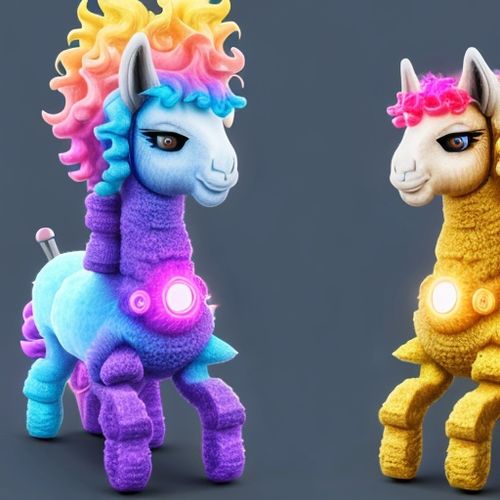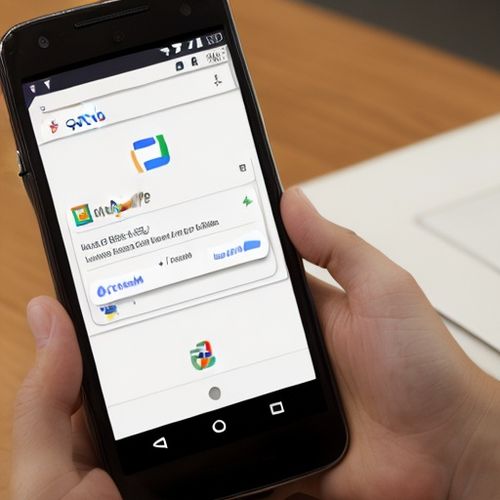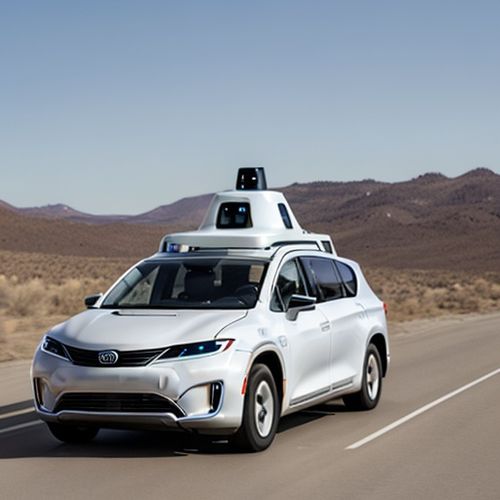In the ever-evolving landscape of transportation, the announcement of a potential deal between Waymo and Toyota has sent ripples of excitement through the industry. This collaboration, if it comes to fruition, could revolutionize not only ride-hailing services but also the broader automotive market by integrating self-driving technology into consumer vehicles. The preliminary agreement signed by these two industry giants is a step towards a future where autonomous vehicles are not just a novelty but a norm.
A Convergence of Strengths
The partnership between Waymo and Toyota is a strategic move that leverages the unique strengths of both companies. Waymo, a subsidiary of Alphabet, has long been at the forefront of autonomous vehicle technology. Its expertise in software, sensors, and machine learning has positioned it as a leader in the development of self-driving systems. On the other hand, Toyota, one of the world's largest automakers, brings decades of experience in vehicle manufacturing, safety standards, and global market reach. By combining these strengths, the two companies aim to create a new autonomous vehicle platform that could redefine the future of mobility.
The goal of this partnership is twofold. Firstly, the companies plan to develop a new autonomous vehicle platform specifically designed for robotaxi services. This platform would be optimized for ride-hailing operations, offering enhanced efficiency, safety, and convenience. Secondly, the collaboration will explore the integration of Waymo's self-driving technology into the next generation of Toyota vehicles sold to consumers. This move could bring the promise of autonomous driving to everyday drivers, making the roads safer and more efficient.
A Shared Vision for Safety and Mobility
The announcement of this potential partnership comes at a time when both companies are increasingly focused on safety and mobility. Hiroki Nakajima, a member of the board and executive vice president of Toyota, emphasized the company's commitment to "realizing a society with zero traffic accidents and becoming a mobility company that delivers mobility for all." This vision aligns closely with Waymo's mission to improve transportation through advanced technology. By working together, Waymo and Toyota aim to accelerate the adoption of autonomous driving technology and enhance road safety.
The timing of this announcement is also noteworthy. Last week, Alphabet CEO Sundar Pichai hinted at the possibility of Waymo exploring personally owned autonomous vehicles during the company's earnings call. This marks a significant shift in strategy for Waymo, which has historically focused on robotaxi services. The potential partnership with Toyota could pave the way for Waymo's technology to reach a broader audience, including individual car owners.
The Evolution of Waymo's Business Model
As Waymo transitions from a research and development program to a commercial operation, it has increasingly sought partnerships with other businesses. This shift is evident in its recent collaborations with Moove and Uber. In Phoenix, Waymo has hired Moove to manage its fleet of autonomous vehicles (AVs), allowing Waymo to focus on core technology development. Similarly, in Austin and soon in Atlanta, Waymo has partnered with Uber to share the responsibilities of robotaxi operations. Under the "Waymo on Uber" service, Waymo handles vehicle testing, roadside assistance, and certain aspects of rider support, while Uber manages fleet services such as vehicle cleaning, maintenance, inspections, charging, and depot operations through a company called Avomo.
These partnerships demonstrate Waymo's strategic approach to scaling its operations. By leveraging the expertise of other companies, Waymo can optimize its resources and accelerate the deployment of its technology. The potential partnership with Toyota could further expand this model, bringing Waymo's self-driving technology to a global audience through Toyota's extensive manufacturing and distribution network.
The Future of Autonomous Vehicles
The potential partnership between Waymo and Toyota is a significant milestone in the development of autonomous vehicles. While the details of the agreement remain vague at this stage, the collaboration holds the promise of transforming the automotive industry. If successful, this partnership could lead to the widespread adoption of self-driving technology, making transportation safer, more efficient, and more accessible.
The integration of Waymo's technology into Toyota vehicles could also have far-reaching implications for the consumer market. Autonomous vehicles have the potential to reduce traffic congestion, lower emissions, and enhance overall quality of life. By working together, Waymo and Toyota could accelerate the transition to a more sustainable and efficient transportation system.
Moreover, the partnership could also drive innovation in related fields such as urban planning, infrastructure development, and smart cities. Autonomous vehicles require sophisticated infrastructure to operate effectively, including dedicated lanes, charging stations, and communication networks. The collaboration between Waymo and Toyota could spur investment in these areas, creating a more integrated and intelligent transportation ecosystem.
The announcement of a potential deal between Waymo and Toyota marks an exciting new chapter in the development of autonomous vehicles. While the details of the partnership are still being fleshed out, the potential benefits are clear. By combining their strengths, Waymo and Toyota could create a new autonomous vehicle platform that revolutionizes ride-hailing services and brings self-driving technology to the masses.
As the automotive industry continues to evolve, the collaboration between Waymo and Toyota serves as a reminder of the power of innovation and strategic partnerships. The future of transportation is not just about technology; it is about creating a safer, more efficient, and more sustainable world. With Waymo and Toyota at the helm, that future may be closer than we think.

By Jessica Lee/Apr 30, 2025

By George Bailey/Apr 30, 2025

By Lily Simpson/Apr 30, 2025

By Michael Brown/Apr 30, 2025

By Laura Wilson/Apr 30, 2025

By Emily Johnson/Apr 30, 2025

By James Moore/Apr 30, 2025

By Megan Clark/Apr 30, 2025

By George Bailey/Apr 30, 2025

By Emily Johnson/Apr 30, 2025

By Daniel Scott/Apr 30, 2025

By Laura Wilson/Apr 30, 2025

By Daniel Scott/Apr 30, 2025

By Samuel Cooper/Apr 30, 2025

By Sarah Davis/Apr 30, 2025

By William Miller/Apr 30, 2025

By Emma Thompson/Apr 30, 2025

By Olivia Reed/Apr 30, 2025

By Laura Wilson/Apr 30, 2025

By Sarah Davis/Apr 30, 2025